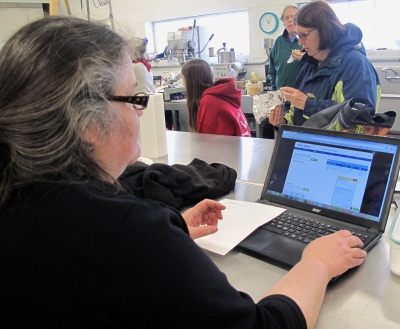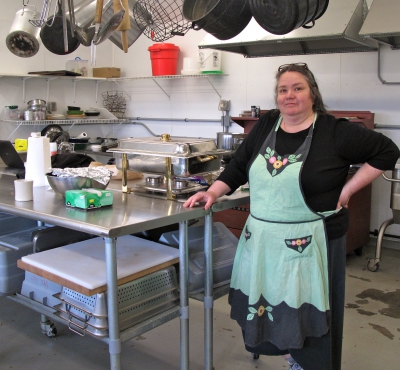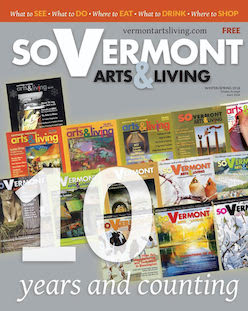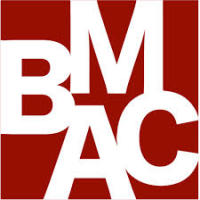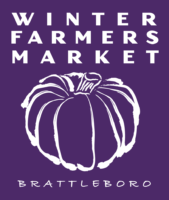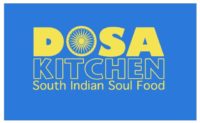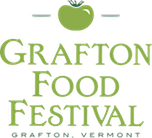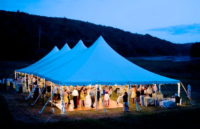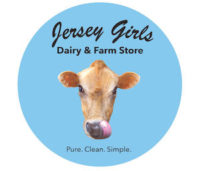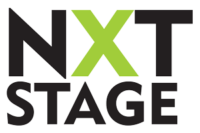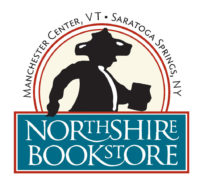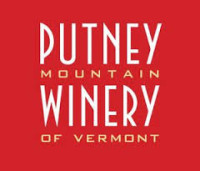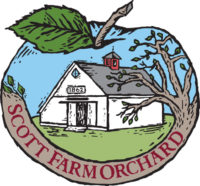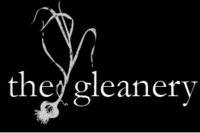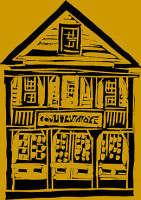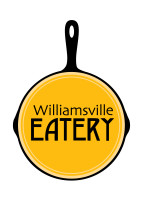By Troy Shaheen
What constitutes a direct connection between farmer and buyer? And what does it mean when shopping locally means shopping online?
A 2013 Strolling of the Heifers study found Vermont to be far and away the nation’s top state in CSAs and Farmer’s Markets per 100,000 people, a key indicator for their Localvore Index. The state has long cultivated a history of community-supported agriculture, a penchant for eating local, and a pride in the robust culture of its small farms. The Vermont CSA and farmer’s market, however, are systems in flux. Long heralded as terrific ways for Vermonters to support their local farmers, cut out the marked-up prices of grocery stores, and enjoy the freshest food possible, digital technology and third party food system start-ups are changing the landscape of eating local, with some interesting effects on the economy and culture of farming and eating in Vermont.
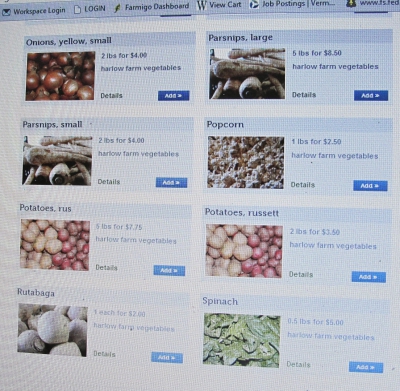 The modern CSA exists in a variety of iterations, ranging from the traditional model of local members’ investment, shared risk, and shared rewards in the form of a weekly “mystery box”, to online purchasing a la carte and delivery at either the home or local community hub. As the local food movement surges nationwide, and gains even more momentum in the Green Mountain State, farmers, consumers, and third party logistics and marketing companies are hustling to find the best way to connect it all together.
The modern CSA exists in a variety of iterations, ranging from the traditional model of local members’ investment, shared risk, and shared rewards in the form of a weekly “mystery box”, to online purchasing a la carte and delivery at either the home or local community hub. As the local food movement surges nationwide, and gains even more momentum in the Green Mountain State, farmers, consumers, and third party logistics and marketing companies are hustling to find the best way to connect it all together.
Your Farmstand, based in Charlotte, VT, provides an online platform for farmers and buyers to connect and arrange in-person deliveries and drop-offs. Their model revolves around a community coordinator who recruits farmers to post offerings on the Your Farmstand website, and notifies potential buyers to go online and make selections. Farmers then deliver the ordered goods on a set day, and buyers stop by to pick up their goods. Coordinators are responsible for specific markets, which began in Charlotte and now include Fairfield, South Burlington, Brandon, and Hardwick, among others. The system differs from the traditional CSA in that buyers have no minimum purchase and no lump sum commitment at the start of a season. They can purchase as much or as little as they desire, and can take it week by week if they choose.
The approach aims to make local food more accessible to a greater number of people. Suzy Hudgson, of Your Farmstand, explains, “Some people who shop through Your Farmstand wouldn’t otherwise be buying local. Barriers like minimum purchases and long-term commitments keep them from CSAs and they simply aren’t free on the days of the week that the farmer’s market is in town.” She doesn’t feel the service competes with either the CSA or the traditional farmer’s market, however, noting, “Others use Your Farmstand as one of the many ways they buy local. People need food every day, so they might head to the farmer’s market on Saturday and pick up from Your Farmstand on Tuesday. We’re just another option, another way to buy and eat local.”
Your Farmstand is expanding as word of their community structure makes its way through the rest of Vermont, though Hodgson explains they have no specific plans to bring their system to Southern Vermont. “We’re grassroots, bottom up,” she maintains. “Yes, we are open to expanding into new communities in the south of the state, but we aren’t going to push it. If we are approached by a community that wants to create a Your Farmstand setup, we’re open to doing that, but we aren’t aggressively pursuing those markets.”
While Your Farmstand might not be setting up a market in Brattleboro or Bennington anytime soon, there are a few other systems that are already bringing online ordering, community delivery, and virtual farmer’s markets to the area. Harlow Farm in Westminster is one of several Vermont farms using Farmigo software. Farmigo is a Palo Alto based tech company providing CSA software and support, allowing farmers to organize online ordering, display their offerings with high-res photography and detailed descriptions, and coordinate the logistics and correspondence of pick-up locations. Jeanette Staley, of Harlow Farm, reports that they are in their first year using Farmigo software and that they “use it for pretty much everything”. “It was more affordable than paying someone to program a new custom ordering system just for us,” she says, “and they’ve been helpful and easy to work with”. Harlow Farm uses Farmigo to coordinate weekly winter CSA deliveries to local organizations and businesses, such as Putney Student Travel in Putney, World Learning in Brattleboro, and the Springfield School District in Springfield. “The only thing, is that I wish they were local,” she adds.
Farmigo may become more and more local, or at least closer to home, as their product develops and their services expand. Though its roots are in software, Farmigo has recently rolled out a new service that mirrors elements of Your Farmstand. They have moved from exclusively providing CSA software to coordinating and managing communities in which buyers order online from a variety of local farmers and then pick up from a central location on a weekly schedule. Farmigo communities are currently in operation in the San Francisco Bay Area and the greater New York City area, including Long Island and the Hudson Valley. CEO Benzi Rosen explains that though they are indeed operating in urban locations, they see communities thriving in suburban and rural areas, in particular. Like Hodgson at Your Farmstand, he doesn’t see Farmigo communities as competitors of farmer’s markets or CSAs. “People go to farmers’ markets for the entertainment and the experience. That will always have its place and Farmigo isn’t going to threaten that. What we’re doing is reaching those who aren’t making it to the farmers’ market.”
Jon Cullen, of Deep Meadow Farm in the Windsor/Ascutney area, is a happy Farmigo software user, but he isn’t thrilled with Farmigo’s move to establish aggregate CSA delivery systems and hopes it doesn’t come to Vermont. “They’ll immediately amalgamate all the farms in the area,” he worries. Cullen expresses a concern that consumers will choose to purchase through aggregate markets like Farmigo rather than directly from the farmer because they’ll be able to amass a much greater diversity of offerings. “Instead of buying from someone who only grows produce, they’ll buy from the Farmigo market that has produce, dairy, baked goods, syrups, sauces, etc. They cut out the direct sale with the farmer and the farmer loses the retail dollars,” he says. “They’re leveraging their software to compete with the same farmers they’re empowering.”
Cullen also expresses a growing sentiment that there exists a certain tension in the evolving digitization and consumer-driven efficiency of custom ordered farmers’ markets and delivery. “The whole movement of local was about empowering farmers and connecting with your neighboring farmers. The Farmigo communities and the automated CSAs are taking us away from that a little bit. It’s a trade-off. On one hand, more people are eating local and we’re doing more business, but on the other hand, less people are meeting us than would with the traditional farm stand or CSA. Less people are actually coming by the farm.”
Harvest to Market, based in Fitzwilliam, NH, runs an online farmer’s market with local community markets in Brattleboro and other nearby towns. Their system is similar to those of Your Farmstand and Farmigo, and has expanded over the past six years through Vermont, New Hampshire, and Maine. Andrew Walters, of Harvest to Market, acknowledges that the idea of community supported agriculture is indeed changing, but notes that innovative approaches are empowering farmers rather than hurting them. He hasn’t heard a single complaint. “We’re not an online mall. We’re not Amazon or any kind of huge system like that. It’s all about local. We’re building relationship that weren’t there before, and we’re connecting people to their neighbors in ways that never happened before this.”
Suzy Hodgson of Your Farmstand seems to concur, saying, “There are digital connections in so many areas of our lives and these don’t replace the personal connections. Our online and offline lives are merged in today’s world and these online connections lead to real-life connections that otherwise wouldn’t have happened.”
As Vermont continues to develop approaches to eating local and systems that benefit both buyer, farmer, and third party coordinator, farmers are hanging on and working to be flexible in an evolving environment. Staley, of Harlow Farm, isn’t ruling anything out yet. “There are so many different variations on CSAs these days,” she says. “I think it will be very interesting to see how all of it shuffles out in the coming years.”


